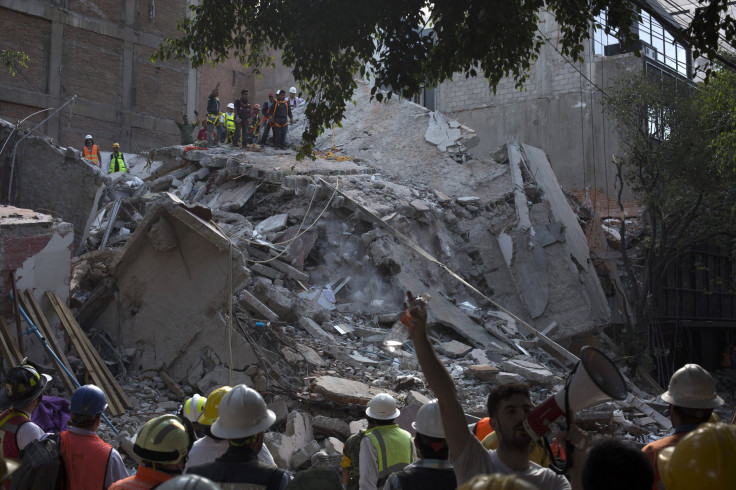Earthquakes Expected To Double In Number In 2018 As Earth's Rotation Slows

A team of scientists presented a research paper to the Geological Society of America, revealing some ground shaking information. The paper has warned that there could be a big increase in numbers of devastating earthquakes around the world next year caused by the slowing down of the Earth's rotation.
The research was conducted and presented by Roger Bilham of the University of Colorado in Boulder and Rebecca Bendick of the University of Montana in Missoula at the annual meeting of the Geological Society of America. They found that variations in the speed of the Earth's rotation could set off intense seismic activity, particularly in the tropical-equatorial regions where the population density is very high.
Any change is the Earth’s rotation speed is minuscule. It is affected by a factor of milliseconds and the changes in the length of day and night cannot be perceived, only calculated. But these small changes set off a seismic rumble that can release vast amounts of underground energy.
"The correlation between the Earth's rotation and earthquake activity is strong and suggests there is going to be an increase in numbers of intense earthquakes next year," Bilham was quoted in a report by The Guardian.
"The rotation of the Earth does change slightly – by a millisecond a day sometimes – and that can be measured very accurately by atomic clocks," noted Bilham.
The two scientists studied all the major earthquakes that registered a magnitude of 7 and above since 1900 to have a wide data-set. They identified a very visible pattern when the data for the whole century was laid out. There seemed to be visible spikes in seismic activity marked by an increase in the number of a large earthquake. Five such spikes were identified and during this period 25 to 30 large earthquakes were experienced every year.
"In these periods, there were 25 to 30 intense earthquakes a year," he said. The other periods identified only averaged 15 quakes a year, Bilham was quoted in the report.
The team was able to draw parallels to other data that could potentially affect seismic activity and found that these five spikes happened during periods when the Earth's rotation decreased in speed slightly.
The slow rotation periods came within five-year stretches. The team found that when the Earth's rotation slowed down over the last century it was followed by periods of massive earthquakes. "The Earth is offering us a five-year heads-up on future earthquakes," said Bilham.
The scary reality is that we are at the end of one of the five-year slowdowns.
"We should see a significant increase in numbers of severe earthquakes. We have had it easy this year. So far we have only had about six severe earthquakes. We could easily have 20 a year starting in 2018."
The earthquake registered off of France's New Caledonia in the Pacific late Saturday night was recorded with a 6.4-magnitude on the Richter Scale.
This means that areas around the equator should be on high alert for a spike in seismic activity. Earthquakes can be devastating in densely populated areas. The team says that there is no way to pinpoint the location of an earthquake. It is also unclear why the speed of rotation causes more seismic activity.
There have already been 9,500 earthquales this year. Understanding what triggers them will help us better urprediction tools and also help us focus preventive efforts in parts that will be affected the most. The scale of destruction if this does happen is unimaginable. The team feels that we have a 5-year heads-up to prepare for possible calamity.
© Copyright IBTimes 2024. All rights reserved.




















